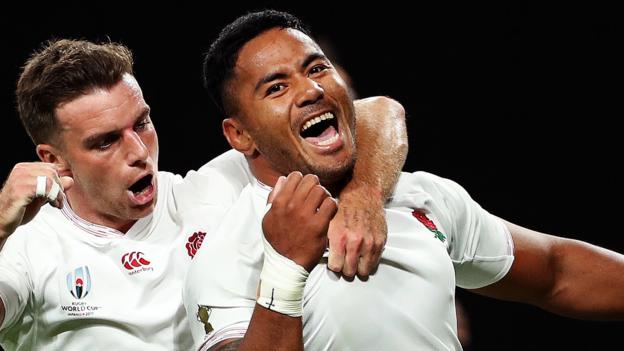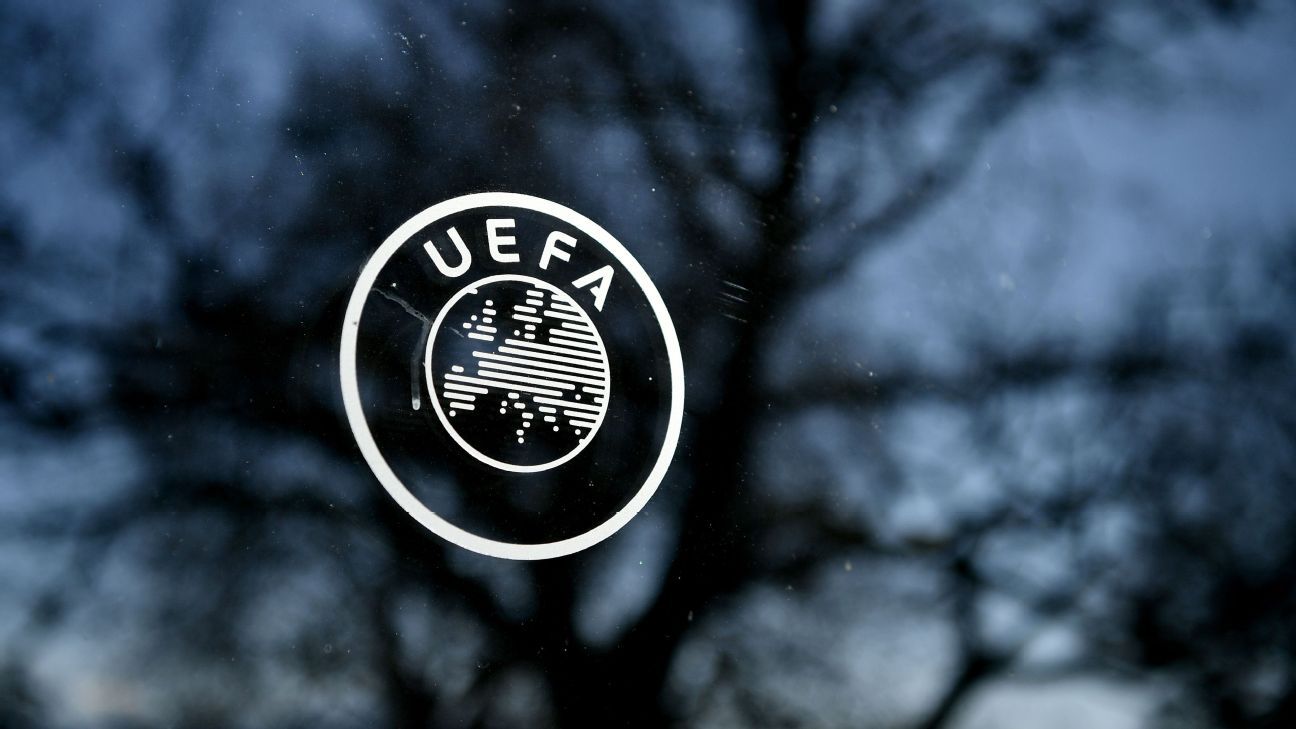
Of the little green shoots and bright sparks around England's predictably comfortable progress through their opening two World Cup group games, Manu Tuilagi's second try against Tonga perhaps hinted at more than any other.
The first was hardly shabby, as he smashed and twisted and powered through the defensive line.
The second, too, wasn't only about the dummy run that sucked in two defenders and created time and space for the wide pass to Jonny May, or the supporting line to take a return pass from his winger and canter away.
It was all those things, but it was also the smile on Tuilagi's face as he approached the try-line.
No-one else in the England team plays with the same obvious enjoyment as the 28-year-old. And no-one else can quite do what he can when fit and in form.
Tuilagi told BBC 5 Live: "I always enjoyed rugby, since I started playing. But I just enjoy it more nowadays.
"I know now that it's not going to last forever, that I have to make the most of it.
"I'm just happy to be out there. You know, sometimes you take it for granted being able to train and being able to play but for me, going out there is what I love doing."
For too much of the past six years Tuilagi has been unlucky with injury but also slow to realise how an international rugby player now has to behave.
Since being one of the few on-pitch positives, aged just 20, as England crashed out of the 2011 World Cup, his list of misdemeanours and misfortunes have been long and varied.
They include jumping off a ferry into Auckland harbour, making a rabbit ears sign behind then-Prime Minister David Cameron's head, punching Chris Ashton, tearing his hamstring, serious problems with both knees, assaulting two female police officers and a taxi driver, and returning to the England hotel drunk during a pre-season training camp.
England coach Eddie Jones has stuck with him though, because he has been around long enough to know a gift when he sees one. A fit Tuilagi is like no other back in Jones' armoury, an unholy combination of power, speed, guile and menace.
Two years ago, when all was rosy in England's garden and he was less in need of him, Jones was being fulsome of a player few thought could make this World Cup.
"I know he can demolish the All Blacks, so he's worth time, he's worth effort and worth a lot of care," he said back then.
Now, when England have first dipped alarmingly then come back towards genuine contention for the biggest prize in their sport, Tuilagi is more precious than ever. Only Owen Farrell and Billy Vunipola are more essential to the Jones blueprint.
"There were a lot of times I thought I might never play rugby again," admits Tuilagi. "I'm very grateful to be here.
"Eddie always kept in touch, all the time I was injured. He was good. It was nice to have that - to give a bit of help, a bit of light at the end of the tunnel. I'm grateful to Eddie for that.
"He's 100% getting the best out of me. He knows how to get his players right individually, to manage his players and get them in the right frame of mind each game.
"He's been in the game at the top level for 20 or more years, and I think that experience helps him. His coaching is very clear and very straightforward.
"With every player it's pretty simple. When you're preparing for a game he'll come up to you and say one or two things to go for.
"In your head you know exactly what you want to do when you get out there, and it helps us massively."
Jones' defence coach John Mitchell has worked with explosive, powerful runners before, notably All Blacks legend Mils Muliaina at the 2003 World Cup, and gave two-time world champion Ma'a Nonu his international debut in the months leading up to that tournament.
In Tuilagi he sees a man who has changed in maturity, a player as comfortable at inside centre - where he played for England in this year's Six Nations - as at outside centre, where he has so far been pushed in this tournament as Jones has gone for the George Ford-Farrell axis at 10 and 12.
Mitchell says: "Manu understands that both roles have different defensive and attacking decision-making aspects.
"When he plays 12, he's closer to the attack and at 13 he gets to have a bit more speed and really run onto the ball, and it's a little more one-on-one rather than two-on-two as a 12.
"Defensively he has the ability when at 13 to spook the attacker. He doesn't always get a hit in, but when he does get hold of you he can certainly feed attack through good defence. He's also very comfortable in space as well.
"He just goes about his footy in a really quiet way. He's a 'doer' rather than a talker.
"He enjoys one-on-one conversations, and he's a good thinker on the game - when you go and have a conversation about a situation, he's really coachable.
"With the Manu we see now, the leadership is clear for him. He's being managed specifically, so I think he gains a lot of confidence from that, with the previous physical limitations he had from all those injuries.
"He's also grateful and respectful that he's at this tournament.
"You never know if you're going to get an opportunity on this world stage ever again, so there's a real sense of unfinished business in his eyes."















 Phone: (800) 737. 6040
Phone: (800) 737. 6040 Fax: (800) 825 5558
Fax: (800) 825 5558 Website:
Website:  Email:
Email: 






